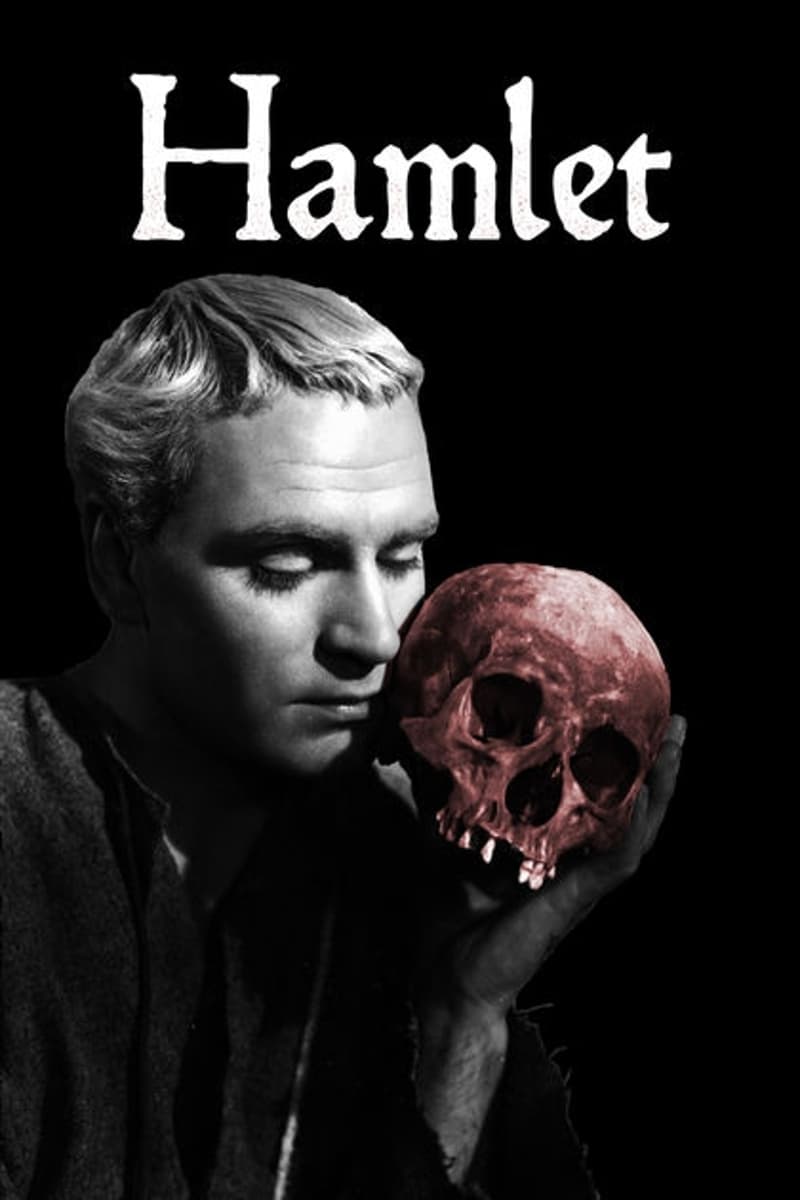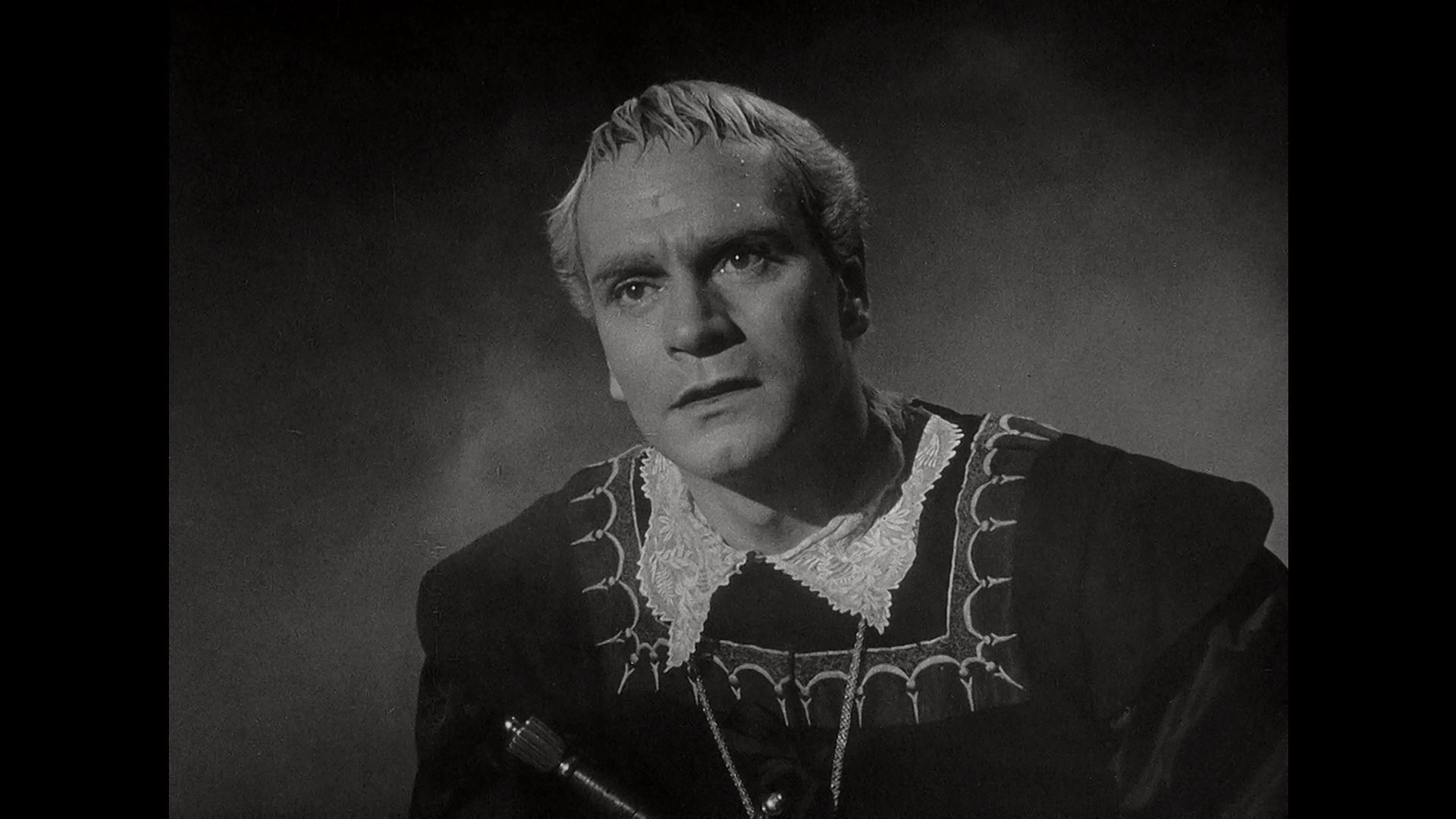
The argument is simple… a lot of people feel that Olivier simply cut too much from the play. This is the first and greatest cause for concern for some people. When performed in its entirety Hamlet runs at about 4.5 hours and yet Olivier’s adaption comes in at just over 2.5 hours. Of the adaptions I’ve seen this version best displays the interpretation that we are witnessing a very real descent into madness and as the King Claudius puts it “madness in great ones should not unwatched go.” Without the powerful performance of depression up front this frenetic performance would fall flat but Olivier shows us a very believable man whose sanity is on the verge of collapsing. Here Olivier shifts his performance and the morose Hamlet is replaced with a frantic and uncontrollable Hamlet. Other characters were able to witness the first appearance of the wretched spirit wandering the battlements but this second appearance is seen by Hamlet only while his equally emotionally disturbed mother sees nothing.

By the second time the ghost of his murdered father appears to Hamlet the nature of his apparent instability is brought into serious question. One of the aspects of the play that I always enjoyed was the blurring of the lines between Hamlets pretending to be mad and being overwhelmed by an actual insanity as disasters unfold. That same deep anguish is partly responsible for leading young Hamlet to fake madness, or to put on an “antic disposition”. This film is a study of the impact his inaction has on both his own mental state and on everyone around him.

Since first appearing on stage the character of Hamlet has become the epitome of procrastination. The story centers on Hamlet’s response to this information and the disastrous events that play out. Upon investigating he discovers the ghost of his father who reveals to him a shocking secret, one that demands swift action.

It is while in this frustrated and angry state of mind that Hamlet hears news of an apparition that is appearing nightly on the castle walls. The queen Gertrude and her new king seem content to forget Hamlet’s father and move on with their ruling of the state while poor Hamlet is clearly still in mourning and very upset. His father had died only a few short months before and Hamlet is furious at his mother’s decision to remarry his uncle Claudius. Before I get to my take on why it could be one of the greatest films ever made or why it could disappoint deeply, here is a brief summary of events: On the island of Elsinore we find the Danish prince Hamlet who is in a deep depression.


 0 kommentar(er)
0 kommentar(er)
